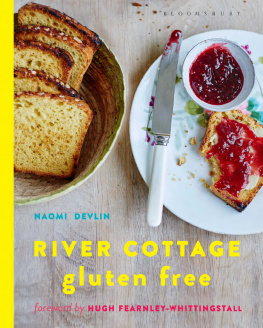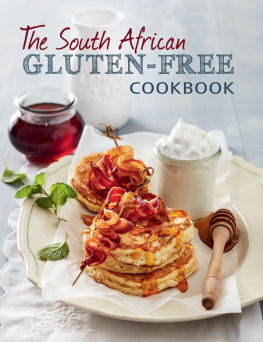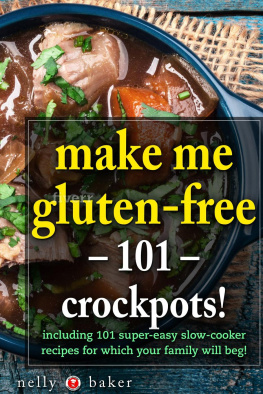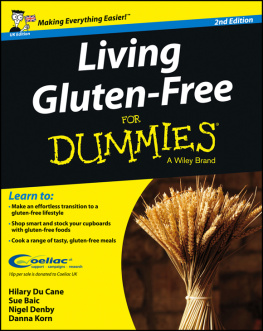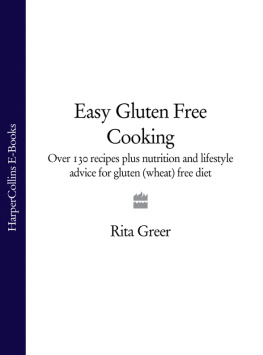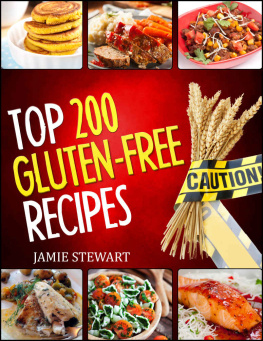
Bloomsbury Publishing
An imprint of Bloomsbury Publishing Plc
50 Bedford Square, London, WC1B 3DP, UK
1385 Broadway, New York, NY 10018, USA
www.bloomsbury.com
Bloomsbury is a registered trademark of Bloomsbury Publishing Plc
This electronic edition published in 2016 by Bloomsbury Publishing Plc
First published in Great Britain 2016
Text Naomi Devlin, 2016
Photography Laura Edwards, 2016
Foreword Hugh Fearnley-Whittingstall, 2016
Naomi Devlin has asserted her right under the Copyright, Designs and Patents Act, 1988, to be identified as Author of this work.
All rights reserved
You may not copy, distribute, transmit, reproduce or otherwise make available this publication (or any part of it) in any form, or by any means (including without limitation electronic, digital, optical, mechanical, photocopying, printing, recording or otherwise), without the prior written permission of the publisher. Any person who does any unauthorised act in relation to this publication may be liable to criminal prosecution and civil claims for damages.
No responsibility for loss caused to any individual or organization acting on or refraining from action as a result of the material in this publication can be accepted by Bloomsbury or the author.
British Library Cataloguing-in-Publication Data
A catalogue record for this book is available from the British Library.
ISBN: HB: 978-1-4088-5847-9
ePub: 978-1-4088-6366-4
Project editor: Janet Illsley
Designer: Georgia Vaux
Photographer: Laura Edwards
Food stylists: Aya Nishimura and Gill Meller
Prop stylist: Tabitha Hawkins
To find out more about our authors and books visit www.bloomsbury.com. Here you will find extracts, author interviews, details of forthcoming events and the option to sign up for our newsletters.


foreword
by HUGH FEARNLEY-WHITTINGSTALL
Some people choose a gluten free diet because they have no option, because eating gluten makes them feel desperately ill. Others follow this path for slightly less dramatic reasons: gluten doesnt actually leave them unwell, but they undoubtedly feel better without it. For some, its simply an intuitive step the modern diet is stuffed, swollen and bound together with tonnes of this stuff; can that possibly be a good thing?
For reasons that fall somewhere between these last two, I myself now eat less gluten than I used to. I regard wheat bread as an occasional carb option, rather than a daily filler and I have reduced my reliance on pastry, pasta and flour thickened sauces. This shift has paid dividends. I have more energy; I feel better, sharper, healthier.
To me, it makes sense to regard with some suspicion the monopoly that glutinous grains have over our diets. It simply isnt wise to let any ingredient have a dominance in our systems. And when you look into the scientific history of modern wheat, the way our bread making practices have changed and the insidious manner in which gluten finds its way into countless processed foods, the fact that so many people now seem to have a problem with it isnt really surprising.
Naomi Devlin discusses those issues in these pages, taking a succinct look at how weve found ourselves in a world where food intolerance and dietary problems are so rife. But what she really focuses on is the way forward. This is a joyful book. Not only does it contain dozens of recipes that I, for one, want to go home and cook right away, but her writing encapsulates what I think is a crucial belief: that cutting out or cutting down on gluten can be, rather than a sacrifice, a truly positive and life enhancing step.
Whatever your reason for choosing to eliminate or reduce gluten, you will doubtless come up against the view that doing so is a penance, a relinquishing of pleasure. You may even feel yourself that you are taking, if not a step backwards, then a step away from nourishing, delicious food. I have noted that adopting a vegetarian diet can sometimes be seen in the same way as a sad thing, a reductive choice. But in both cases, this thinking is all wrong. Just as meat is simply one ingredient, so gluten-containing grains represent just a small slice of the carbohydrates available to us. Removing these elements should simply shift ones focus to the thousands of other fantastic foods that are still very much on the menu.
Its not all plain sailing, of course. It would be glib to suggest that giving up gluten is easy; its ubiquity has had us all under its spell for a long time, and learning how to cook without it is a challenge. But I have found that challenges in the kitchen and I have set myself many over the years nearly always lead to creative and delicious solutions.

In the West, our reliance on gluten (and on wheat in particular) is a case of almost arbitrary favouritism. We feel that gluten-containing flours are the best for all jobs because they are the ones we are familiar with. But, in reality, our cooking has evolved to accommodate them, not the other way round. There is no reason why it cant evolve further and cookery is always evolving to accommodate different foods. Indeed, in many cultures, gluten free ingredients such as buckwheat, chickpeas and corn already are starchy staples and have been for a very long time for centuries, if not millennia. Gluten free cooking isnt always about innovation: sometimes, it means turning back to time honoured, traditional recipes.
Of course, gluten free food is not always good Im thinking particularly of the products that fill the free from shelves in so many supermarkets. And its an unfortunate fact that many people first come to gluten free cooking via the experience of ill health. When you take these factors into account, it is no surprise that gluten free eating is so often associated with negativity. But that is exactly why we need colourful, life affirming, celebratory, downright delectable books like this one. In these pages, Naomi, whose wonderful teaching at River Cottage has delighted, reassured and inspired so many of our visitors, turns the regretful no of giving up gluten into a glorious, greedy yes! to delicious, simple, health enhancing food.
When I wrote a book of wheat free recipes myself a while ago, my approach was the same: to enthusiastically embrace the new ingredients I was discovering and the fresh ways of cooking they inspired to positively celebrate this rather new way of putting food on the table. I was determined never to bemoan the lack of anything, or to reinforce the sense that without wheat, we deny ourselves. And I found it easy: I had a blast testing and trying those recipes and many of them are now regular staples in my kitchen.
I am quite certain the same will be true of the fantastic recipes in this book. Naomi is a hugely creative and inventive cook, but also a reliable and thorough one. Of course choux pastry or chocolate chip cookies made without gluten wont be the same as their glutinous counterparts. But they can be equally good, or better. I have come to the firm belief that gluten free brownies, for instance, are often superior to wheaty ones: the chocolatey corkers () prove my point.
Naomi is not just an inspiring cook and expert teacher, but a lovely writer too. She has a gift for clarifying the sometimes rather complex world of nutrition, neatly and elegantly teasing out the facts that are truly useful and relevant. And the
Next page
